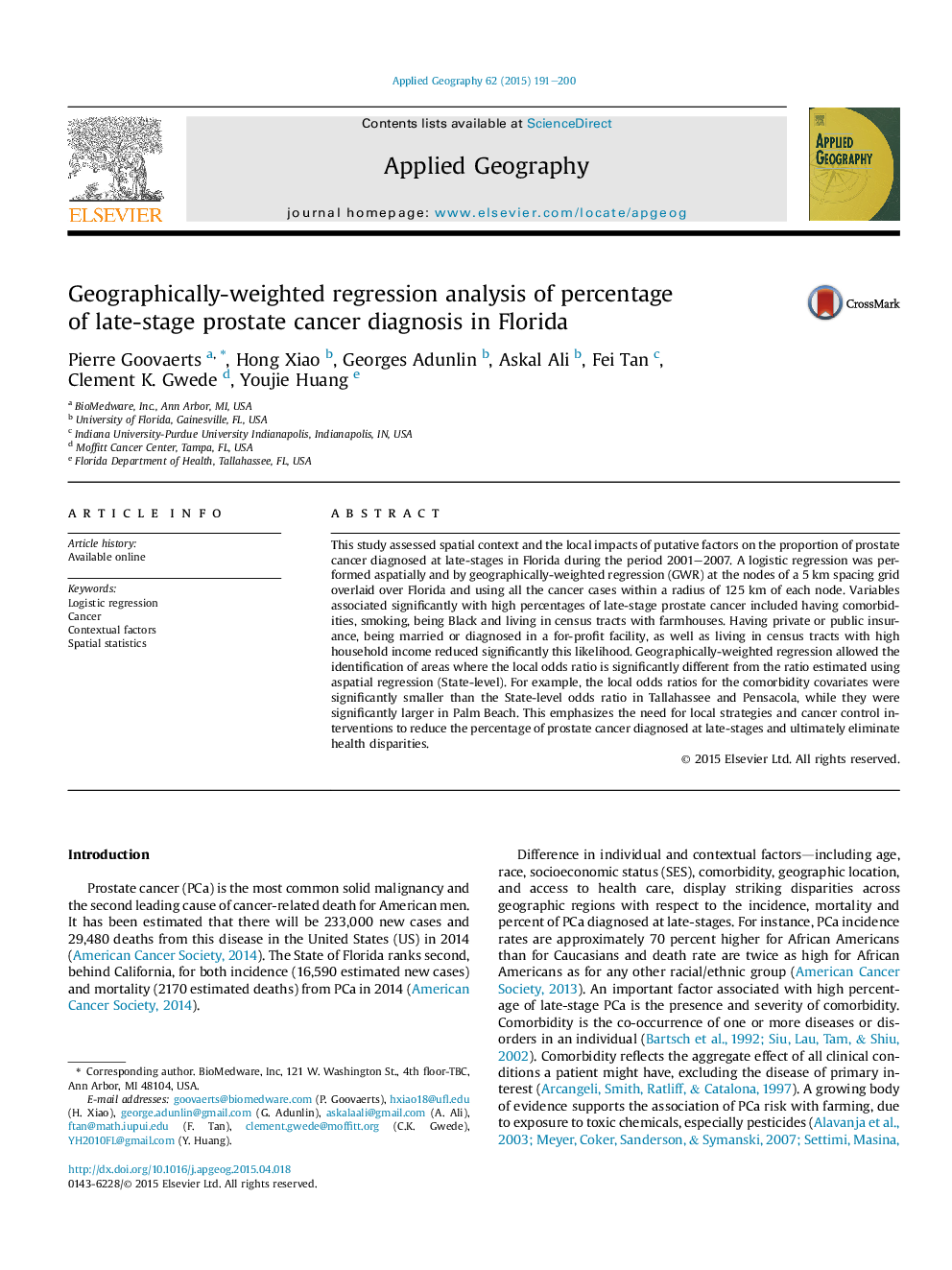| Article ID | Journal | Published Year | Pages | File Type |
|---|---|---|---|---|
| 6538506 | Applied Geography | 2015 | 10 Pages |
Abstract
This study assessed spatial context and the local impacts of putative factors on the proportion of prostate cancer diagnosed at late-stages in Florida during the period 2001-2007. A logistic regression was performed aspatially and by geographically-weighted regression (GWR) at the nodes of a 5Â km spacing grid overlaid over Florida and using all the cancer cases within a radius of 125Â km of each node. Variables associated significantly with high percentages of late-stage prostate cancer included having comorbidities, smoking, being Black and living in census tracts with farmhouses. Having private or public insurance, being married or diagnosed in a for-profit facility, as well as living in census tracts with high household income reduced significantly this likelihood. Geographically-weighted regression allowed the identification of areas where the local odds ratio is significantly different from the ratio estimated using aspatial regression (State-level). For example, the local odds ratios for the comorbidity covariates were significantly smaller than the State-level odds ratio in Tallahassee and Pensacola, while they were significantly larger in Palm Beach. This emphasizes the need for local strategies and cancer control interventions to reduce the percentage of prostate cancer diagnosed at late-stages and ultimately eliminate health disparities.
Related Topics
Life Sciences
Agricultural and Biological Sciences
Forestry
Authors
Pierre Goovaerts, Hong Xiao, Georges Adunlin, Askal Ali, Fei Tan, Clement K. Gwede, Youjie Huang,
